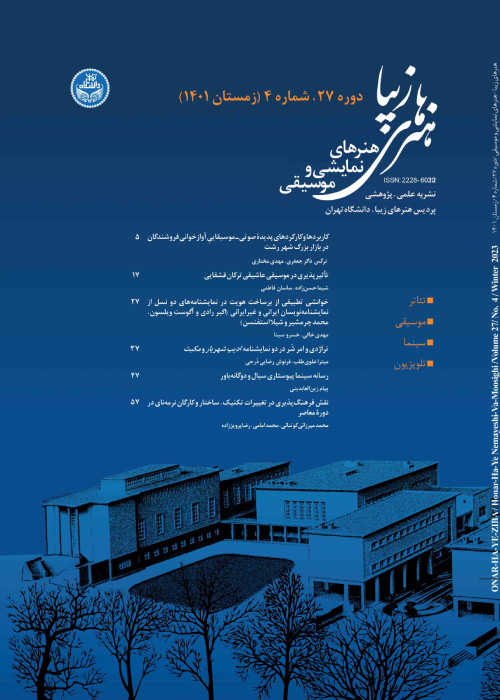Iranian Choral Music: The challenges and obstacles
The first Iranian choir was founded in 1940s by Ruben Grigoryan, an Iranian-Armenian composer and choirmaster. since then, many choir groups have been established over the decades, and Iranian composers have made a creative effort, especially in the genre of choral folksong arrangements, which has achieved remarkable success. However, Iranian choral music, as a phenomenon outside the culture of Iranian national music, has always faced challenges and obstacles which have affected its growth and improvement. Some of these challenges were linked to the technical, vocal and verbal complexities of composing for choir, as well as the repertoire's limitations in relation to Iranian culture and literature. And some of these obstacles were due to the auditory taste of Iranians, and the fact that some Iranian musicians were opposed to promoting Western music. The history of Western music has shown that polyphony has been closely linked to religious vocal music. And over time, most polyphonic techniques have shifted from vocal (choral) music to instrumental music. This evidence suggests that "polyphonic texture" is one of the cornerstones of choral music and is linked to the formation and development of religious music genres. The issue of the inconsistency of church religious music with Iranian religious culture has been one of the reasons why choral music has been abandoned by the Iranian people. Choral music, like other forms of Western music that has become popular in Iran, has naturally encountered the category of musical originality and identity. And Iranian choral composers, in addition to technical solutions, must take a definite approach to this category so that their works can be recognized as the work of an Iranian composer. Despite these problems, choral music attractions, exploring the use of polyphonic features in Iranian music and helping to develop academic music have led to the continued involvement of Iranian choral groups and choral composers. But for a few reasons there has been no research on Iranian choral music: one is that there are few written sources on Persian choral music, and the other that much of the choral work of Iranian composers has not been published. The present study, based on a few written and audio sources, as well as using interview methods and questionnaires, has explained and analyzed the challenges and obstacles of Iranian choral music. In this study, we interviewed ten Iranian musicians, including composers, choirmasters, and musicologists, on issues of Iranian choral music. Also, the opinions of 170 musicians such as researchers, players, choir singers were surveyed through a Likert-type questionnaire. This study focuses on the main issues of Iranian choral music and studies the reasons for its underdevelopment. This research evaluates the factors of the non-expansion of choral music in Iran as follows: the complexities of composing and performing Iranian choral works, the strangeness of the Western choral singing style and the lack of connection between Western religious choral works and Iranian audiences. The present study emphasizes that future research on the social and health effects of singing in Iranian choirs can be effective in the development of Iranian choral music.
- حق عضویت دریافتی صرف حمایت از نشریات عضو و نگهداری، تکمیل و توسعه مگیران میشود.
- پرداخت حق اشتراک و دانلود مقالات اجازه بازنشر آن در سایر رسانههای چاپی و دیجیتال را به کاربر نمیدهد.



